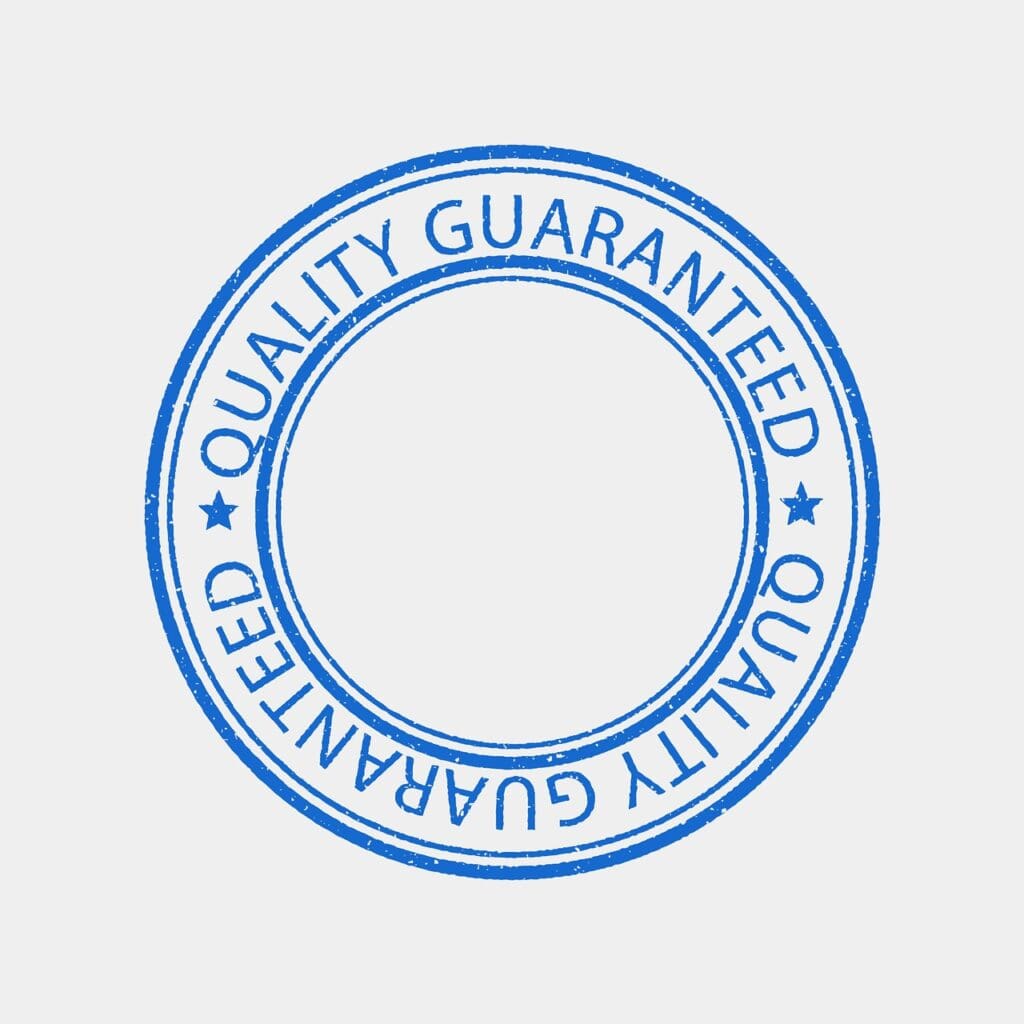In the world of search engine optimization, understanding the intricate relationship between link quality and page rank is crucial for website owners and content creators alike. Links, both incoming and outgoing, play a vital role in determining a website’s visibility and authority in the online realm. This article explores the significance of link quality in influencing page rank, shedding light on the importance of building strong, trustworthy connections within the digital landscape. By grasping this relationship, you can enhance your website’s visibility and improve its standing in the competitive online world.

What is Page Rank?
Introduction to Page Rank
Page Rank is an algorithm developed by Google to determine the importance and relevance of web pages in their search engine rankings. It is based on the idea that a website’s importance is determined by the number and quality of links pointing to it. The higher the Page Rank of a website, the more authoritative and trustworthy it is considered to be by search engines.
How Page Rank is calculated
The calculation of Page Rank involves analyzing the number and quality of links that point to a particular webpage. Each link acts as a vote of confidence for that webpage, with the credibility of the linking website also playing a role. The number of outbound links from the linking webpage is another factor that affects the Page Rank passed to the linked webpage. In short, Page Rank is a measure of the link popularity and authority of a webpage.
The importance of Page Rank in search engine optimization
Page Rank plays a crucial role in search engine optimization (SEO) as it directly affects how well a webpage ranks in search engine results pages (SERPs). Websites with higher Page Rank are more likely to rank higher in SERPs, resulting in increased visibility, organic traffic, and potential customers. By understanding and optimizing for Page Rank, website owners and SEO professionals can improve their website’s search engine rankings and ultimately achieve their online goals.
What is Link Quality?
Definition of link quality
Link quality refers to the measure of how valuable, relevant, and trustworthy a link is to a webpage. It is determined by various factors, including the authority and trustworthiness of the linking website, the relevance of the linking site’s content to the linked webpage, and the context in which the link is placed. High-quality links are those that come from reputable and authoritative sources and are relevant to the content of the linked webpage.
Factors that determine link quality
Several factors influence the quality of a link. These include the relevance of the linking site, the authority and trustworthiness of the linking site, the relevance of the anchor text, the placement of the link, the contextual relevance, the reputation of the linked website, the diversity of the linking domains, the freshness of the links, the social signals associated with the link, and the level of engagement the link receives.
How search engines evaluate link quality
Search engines evaluate link quality by analyzing the factors mentioned above. They consider the reputation and authority of the linking domains, the relevance of the linking pages’ content, and the overall user experience provided by the linked website. Links from high-quality and reputable websites are given more weight in search engine algorithms, improving the linked webpage’s chances of ranking higher in SERPs.
Understanding the Relationship
Page Rank’s impact on link quality
Page Rank significantly influences the perceived quality and value of a link. A link from a webpage with high Page Rank carries more weight and authority than a link from a webpage with low Page Rank. As Page Rank is a measure of the authority and reputation of a webpage, it has a direct impact on how search engines evaluate the quality of the links pointing to a webpage.
How link quality affects Page Rank
Link quality affects Page Rank by determining the credibility and authority of the links pointing to a webpage. High-quality links contribute more to a webpage’s Page Rank, while low-quality links may have little to no impact or even result in a decrease in Page Rank. Search engines consider high-quality links as indications of a webpage’s authority and relevance, thus positively affecting its Page Rank.
Examples of high-quality and low-quality links
High-quality links may come from reputable websites in the same or related industry, have relevant anchor text, be placed within contextually relevant content, and have a diverse set of linking domains. On the other hand, low-quality links may come from irrelevant or spammy websites, have irrelevant anchor text, be placed within unrelated or low-quality content, and come from a limited set of linking domains.
Importance of High-Quality Links
Benefits of high-quality links for Page Rank
High-quality links offer several benefits for Page Rank. Firstly, they contribute to the overall authority and reputation of a webpage, ultimately improving its Page Rank. Secondly, high-quality links increase the visibility and discoverability of a webpage in search engine results, leading to increased organic traffic. Lastly, they help establish the website as an authoritative source, attracting more natural and organic links from reputable websites.
How high-quality links improve search engine rankings
High-quality links play a vital role in improving search engine rankings. They signal to search engines that the linked webpage is trustworthy, relevant, and authoritative, leading to higher rankings in SERPs. Quality links also drive referral traffic from the linking websites, further boosting the webpage’s visibility and credibility. Moreover, high-quality links contribute to a well-rounded and natural link profile, which is favored by search engine algorithms.
Strategies for obtaining high-quality links
To obtain high-quality links, it is essential to focus on creating valuable and engaging content that naturally attracts links from reputable websites. Developing relationships with authoritative websites in the same industry can also lead to quality link opportunities. Earning organic and natural links through exceptional website design, user experience, and thought leadership is another effective strategy. Additionally, participating in guest blogging, requesting backlinks from relevant websites, and leveraging social media can help acquire high-quality links.

Negative Effects of Low-Quality Links
How low-quality links can harm Page Rank
Low-quality links can harm Page Rank by diminishing the overall authority and credibility of a webpage. When an excessive number of low-quality links point to a webpage, search engines may assume that the website is engaging in manipulative or spammy practices, resulting in a decrease in Page Rank. Additionally, low-quality links from irrelevant or spammy sources can cause search engines to penalize the linked webpage, further lowering its rankings in SERPs.
Consequences of low-quality links in search engine rankings
Low-quality links can lead to several negative consequences in search engine rankings. The presence of low-quality links can result in a decreased Page Rank and, subsequently, a drop in organic traffic. It can also lead to search engines assigning a lower relevance and authority score to the linked webpage, causing it to rank lower in SERPs. Furthermore, websites with a large number of low-quality links may be flagged as spammy or untrustworthy, negatively impacting their overall online reputation.
Identifying and addressing low-quality links
To identify low-quality links, website owners and SEO professionals can utilize various tools and techniques, including backlink analysis tools and manual review. It is essential to analyze the relevancy, authority, and trustworthiness of the linking domains and the context in which the links are placed. Once identified, low-quality links can be addressed by either removing or disavowing them through Google’s Disavow Tool. Regular monitoring and auditing of the link profile are crucial to maintaining a healthy and high-quality link profile.
Factors Affecting Link Quality
Relevance of the linking site
The relevance of the linking site to the content of the linked webpage is a crucial factor in determining link quality. Links from websites that share a similar industry, topic, or theme have higher relevance and are considered more valuable. Search engines prioritize relevance to provide users with accurate and useful information.
Authority and trustworthiness of the linking site
The authority and trustworthiness of the linking site significantly impact link quality. Links from authoritative and trustworthy websites carry more weight and are perceived as more valuable. Websites with a strong online presence, reliable content, and a good reputation are considered trustworthy by search engines.
Anchor text relevance
Anchor text, the clickable text used in a hyperlink, plays a role in determining link quality. Relevant anchor text that accurately describes the content of the linked webpage adds value to the link. Search engines evaluate the anchor text to gain insights into the content and context of the linked webpage.
Link placement
The placement of the link on the linking site affects link quality. Links within the main body of content are generally considered more valuable, as they are more likely to be relevant and receive more user attention. On the other hand, links in headers, footers, or sidebars may have less impact on link quality.
Contextual relevance
The contextual relevance of the content surrounding the link influences link quality. Links within contextually relevant content, such as articles or blog posts, are generally more valuable than links within unrelated or low-quality content. Linking within relevant content enhances the user experience and provides additional information.
Website reputation
The reputation of the linked website contributes to link quality. Websites with a good reputation and positive user reviews are more likely to have high-quality links pointing to them. Search engines consider the overall reputation of a website as an indication of its trustworthiness and authority.
Linking domain diversity
The diversity of linking domains affects link quality. Links from a variety of unique domains indicate a natural link profile and strengthen the credibility and authority of the linked webpage. Too many links from a single domain may raise suspicion and potentially lower link quality.
Link freshness
The freshness of links is an important factor in determining link quality. Newly acquired links are generally seen as more valuable than outdated or stagnant links. Fresh links indicate that a website is still actively attracting attention and remains relevant in its industry.
Social signals
Social signals, such as likes, shares, and comments, associated with a link can influence link quality. Links that receive high engagement and social validation are often considered more valuable. Social signals indicate that users find the linked content valuable and relevant.
Link engagement
The level of engagement a link receives, such as click-through rates, time spent on the linked webpage, and bounce rates, can affect link quality. Links that generate higher user engagement are typically viewed as more valuable. Increased engagement signals to search engines that the linked webpage provides valuable and relevant information.

Best Practices for Improving Link Quality
Creating high-quality and engaging content
One of the best practices for improving link quality is to create high-quality and engaging content that naturally attracts links from reputable websites. By providing valuable and shareable content, website owners increase the likelihood of other websites linking to their content, thereby improving link quality.
Developing relationships with authoritative websites
Building relationships with authoritative websites in the same industry can lead to quality link opportunities. Through collaborations, partnerships, and guest blogging, website owners can establish connections with reputable websites and secure relevant and high-quality links.
Earning natural and organic links
Earning natural and organic links by providing exceptional website design, user experience, and thought leadership is a highly effective strategy for improving link quality. When websites offer valuable and relevant content, other websites are more likely to link to them naturally, signaling to search engines the quality and authority of the linked webpage.
Avoiding link schemes and black hat techniques
To maintain high link quality, it is crucial to avoid engaging in link schemes and black hat techniques. These unethical practices, such as buying links or participating in excessive link exchanges, can lead to penalties and a decrease in link quality. It is essential to focus on organic and natural link acquisition strategies that adhere to search engine guidelines.
Regularly monitoring and auditing link profile
Regularly monitoring and auditing the link profile are essential for maintaining high link quality. Identify and address low-quality links by removing or disavowing them through Google’s Disavow Tool. Regular analysis and optimization of the link profile ensure a healthy and high-quality link profile that positively impacts website rankings.
Link Building Strategies for Page Rank Improvement
Guest blogging and contributor opportunities
Participating in guest blogging and contributor opportunities can help build high-quality links. By writing valuable and relevant content for other reputable websites, website owners can secure links back to their own website, improving Page Rank and increasing visibility.
Requesting backlinks from relevant websites
Requesting backlinks from relevant websites can be an effective strategy for improving Page Rank. By reaching out to websites in the same industry or related fields, website owners can request links to their valuable content, enhancing their authority and visibility in search engine rankings.
Creating shareable and link-worthy content
Creating shareable and link-worthy content is key to attracting high-quality links. By producing exceptional and valuable content, websites increase their chances of being linked to by other reputable websites. Engaging infographics, comprehensive guides, and thought-provoking articles are examples of content that often earns quality links.
Utilizing social media for link building
Leveraging social media platforms can also contribute to link building and improve Page Rank. By sharing valuable content, engaging with industry influencers, and participating in relevant discussions, website owners can attract attention and encourage social sharing, leading to organic link acquisition.
Partnering with influencers to gain quality links
Collaborating with influencers in the industry can be an effective way to gain quality links. By partnering with influencers, website owners can leverage their authority and audience to obtain high-quality links and improve the overall Page Rank of their website.

The Evolving Nature of Page Rank and Link Quality
Changes in search engine algorithms
Page Rank and link quality are not constant and subject to changes in search engine algorithms. Search engines regularly update their algorithms to improve the relevance and accuracy of search results. It is essential to stay informed about these changes and adapt link building strategies accordingly.
Shifts in link quality evaluation
Search engines continuously evolve their evaluation of link quality. What may have been considered a high-quality link in the past may no longer hold the same weight in search engine rankings. Factors such as user engagement, social signals, and the quality and relevance of content are increasingly influencing link quality evaluation.
Adapting link building strategies to stay relevant
To maintain and improve Page Rank, it is crucial to adapt link building strategies to stay relevant. This involves keeping up with changes in search engine algorithms, staying informed about emerging industry trends, and continuously refining link building techniques. By remaining adaptable and flexible, website owners can ensure the continued success of their link building efforts.
Conclusion
Importance of understanding the relationship
The relationship between link quality and Page Rank is crucial for the success of any website’s search engine optimization efforts. Understanding how Page Rank works and how link quality affects it can help website owners and SEO professionals make informed decisions to improve their website’s visibility and rankings in search engine results.
Practical steps to improve link quality and Page Rank
Improving link quality and Page Rank requires a comprehensive approach that includes creating high-quality and engaging content, developing relationships with authoritative websites, earning natural and organic links, avoiding link schemes and black hat techniques, and regularly monitoring and auditing the link profile.
Continual monitoring and optimization for long-term success
Page Rank and link quality are not static concepts and require ongoing monitoring and optimization. By staying updated on changes in search engine algorithms, evaluating link quality, and adapting link building strategies, website owners can ensure long-term success in improving Page Rank and enhancing their website’s search engine rankings.


